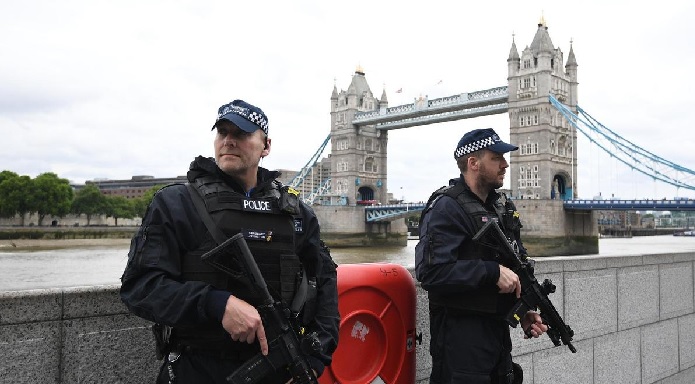More than 1,000 terrorists arrested across Europe as 119 plots uncovered

Almost 120 terrorist plots were uncovered across Europe last year, resulting in more than 1,000 arrests.

Almost 120 terrorist plots were uncovered across Europe last year, resulting in more than 1,000 arrests.
Over the course of the past several weeks, more Western nations have taken steps to repatriate their citizens and children of Islamic State fighters or their family members who may have been born in the caliphate.

Reported civilian casualties in Libya have surged over the past year amid a prolonged battle for the capital, Tripoli, with forces believed to be linked to a warlord based in the eastern part of the country responsible for most noncombatant deaths, a study found.
France repatriated ten children of French jihadists from Syria on Sunday night.

A court in the Netherlands on Thursday sentenced a Dutch Kurd who in 2016 served as a volunteer for the People’s Protection Units’ (YPG) in Syria to 240 hours of community service and a six-month suspended sentence.

Some say Ku Klux was chosen as the name for the U.S. white supremacist organization because it mimics the sound of a rifle being cocked, though other evidence points to the appeal of the Greek word kyklos, which means circle. That was essentially the goal of the defeated Confederate soldiers who formed the Ku Klux Klan in 1865—to encircle or kill Black Americans. As the klan grew in power, it made its intentions publicly clear: promoting Confederate jingoism; pushing back on Reconstruction-era rights; performing terrorist raids to intimidate; destroying property, especially churches; assaulting; taunting; lynching; hanging; and dragging the bodies of Black men behind cars. These acts were carried out to promote white supremacy and also for gaining political power.

In the wake of the police killing of George Floyd, Americans are finally — or is it once again? — confronting the racism that afflicts this country and extends into just about every corner of our national life. Something fundamental just might be happening.

Five years after it was signed in June 2015, what has happened to the Agreement on Peace and Reconciliation in Mali?
In June 2015, the Malian government, a coalition of pro-government armed groups from northern Mali called the Platform and the Coordination of Azawad Movements (Coordination des mouvements de l’Azawad, CMA) – an alliance of rebel groups – convened in Bamako and signed an agreement to restore peace in the country. The signatories were under great pressure from an international mediation team to accept the final text, which was drafted after less than a year of often indirect negotiations. The mediation team was led by Algeria and included the UN Stabilisation Mission in Mali (MINUSMA), the Economic Community of West African States (ECOWAS), the African Union (AU) and the European Union, as well as the United States and France, who were initially designated “friends of the mediation”.

“The only long-term solution to the fascist menace is to undermine its pillars of strength in society grounded not only in white supremacy but also in ableism, heteronormativity, patriarchy, nationalism, transphobia, class rule, and many others.” — Mark Bray, “Antifa: The Anti-Fascist Handbook,” 2017.

Amnesty records 200 state killings and forced disappearances in Burkina Faso, Mali and Niger, state members of internationally-backed G5 group